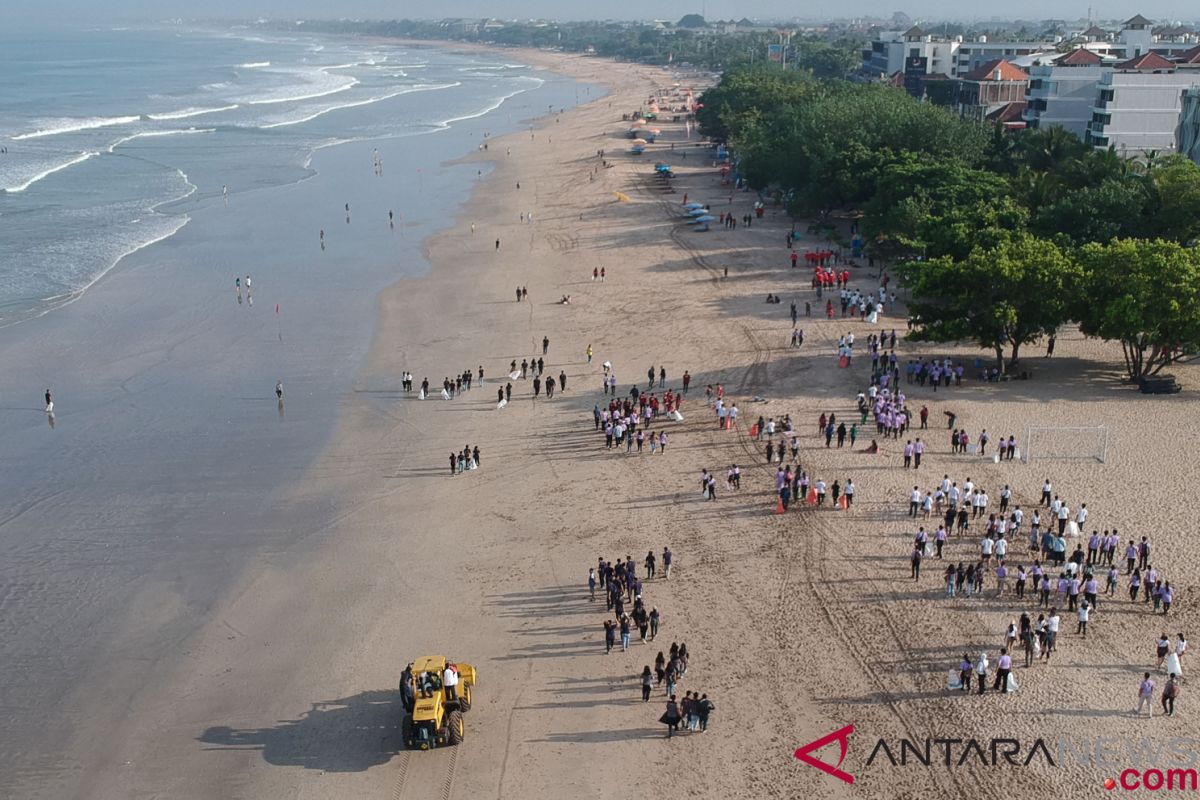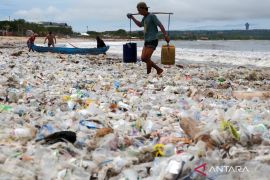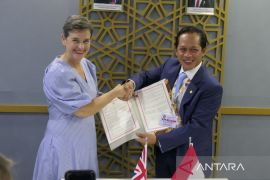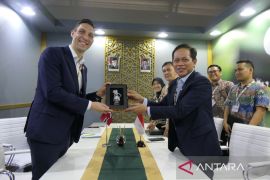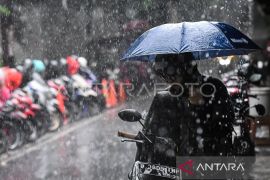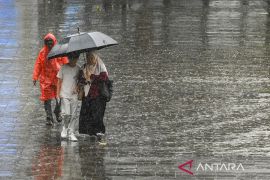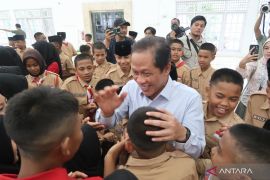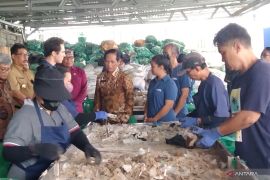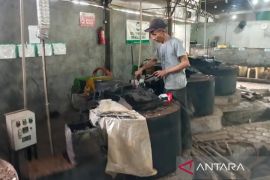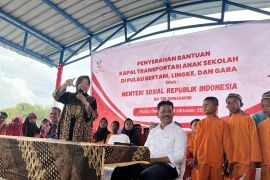Plastic waste in Indonesian waters also has the potential of attracting and concentrating sea water pollutants around, which is more dangerous.
Hence, fast action is needed to clean up the coastal areas and marine environment in Indonesia in order to avoid harmful pollutants.
Indonesia is among 150 countries worldwide to clean up its coastal environment from the westernmost point to the easternmost point of the country, from Sabang to Merauke, to support the World Cleanup Day on Sept 15, 2018, as a global social action program aimed at combating the global solid waste problem, including the problem of marine debris.
Thousands of people in at least 91 locations across the country, from Sabang to Merauke, participated in the World Cleanup Day, called simultaneous "Sea Facing" activities on Saturday.
In West Aceh District, Aceh Province, some 300 people participated in the World Cleanup Day activities by cleaning the yards of mosques and the Suak Ribee beach.
The activities were part of an international social action program that aims to reduce the waste population globally because it is carried out not only in Indonesia but also in other parts of the world simultaneously on Sept 15, 2018.
Indonesia involved 13 million participants, starting from Sabang at the western end of the country to Marauke, with each region making a breakthrough by cleaning up garbage, especially coastal waste coming from the sea.
In West Aceh District, participants cleaned plastic waste scattered on land to garbage in the ditch, in the courtyards of the mosques, and all the way to the shore of Suak Ribee beach.
In the meantime, the Maritime Affairs and Fisheries Ministry (KKP) also cooperated with the Ocean Conservancy Institution from the United States and Bali`s regional government to hold the coastal cleanup activity in the Indonesia`s island resort of Bali on Saturday.
"The KKP welcomes the cooperation with the Ocean Conservancy Institution to invite various stakeholders to participate in an activity that has a real and direct impact on our coastal and marine environment through the Love of the Ocean Movement," KKP Director of Marine Space Management Brahmantya Satyamurti Poerwadi remarked on Saturday.
The KKP, Bali regional government, Ocean Conservancy Institution, Non-Governmental Organizations, and a total of 1,287 volunteers gathered at the Padang Galak Beach in Bali on Saturday to collect as much as 841.53 kilograms of garbage.
The collected waste will then be recorded in the Ocean Conservancy Sea Waste Index, the largest marine waste database in the world.
The activities, initiated by the KKP along with various civil society organizations and the local government, involved approximately 50 thousand participants who managed to collect some 360 tons of marine and coastal waste.
In addition to clearing waste from the coastal areas, they conducted mangrove planting, coral transplantation, and salt harvesting, as well as provided diving goggles to children and released fish and turtle seeds into the sea.
Poerwadi remarked that the handling of marine waste will continue through various activities that can reach more people.
"Collaboration with organizations, such as Ocean Conservancy, is helpful in the Indonesian government`s efforts to manage sustainable marine resources, especially in overcoming the problem of plastic waste at sea," he added.
In Bengkulu, as many as three thousand residents of the city were also involved in the worldwide clean-up action that took place simultaneously in 150 countries around the world on Saturday morning.
Bengkulu participated in this global movement for clean-up actions centered on Pantai Panjang, the World Clean Day (WCD) Chairperson of Bengkulu, Ilza Surya Pratama, remarked in Bengkulu on Saturday.
Pratama remarked that the participants consisted of cross-sectors from the state civil apparatus, the TNI, the National Police, the cross-community, and students.
The point of activity was centered on the Pantai Panjang tourism area, which is one of the tourism icons of Bengkulu Province.
In addition to the Pantai Panjang area, the clean-up action also spread to Zakat Beach and coastal communities.
Efforts to reduce global plastic waste are a serious concern of the Indonesian government, along with delegations from various countries at the Basel Convention Working Group meeting in Geneva from Sept 3 to 6, 2018.
On the occasion, Indonesia, along with Norway, Switzerland, the United Kingdom, and Uruguay invited Heads of the Permanent Missions to the UN Office at Geneva and heads of delegation at the meeting of the Basel Convention`s Open-ended Working Group to participate in the High-Level Event on Marine Plastic Waste and Micro-plastics.
In a written statement from Indonesian Permanent Representative Office for the UN in Geneva, Indonesia called for a reduction in global plastic waste.
Marine plastic waste is an environmental problem occurring on a global scale today.
Found in every part of the ocean, plastic wast can be transported over great distances, and its durability means it will remain in the ocean for a long time.
Global plastic production has increased steadily and has reached 320 million tons a year. Of the estimated 6.3 billion tons of plastic waste produced since the 1950s, only 9 percent has been recycled and another 12 percent incinerated.
The greatest burden of plastic waste entering the sea is likely to arise where waste collection systems are ineffective or even non-existent.
Developing countries, in particular, may face challenges in managing the rapidly growing volume of plastic waste, and may face challenges if they have not developed sufficient capacity to dispose of plastic waste and rely on the continued availability of recycling capacity in other states.
Therefore, pollution by marine plastic litter and micro-plastics needs to be tackled at source.
Reporter: Otniel Tamindael
Editor: Fardah Assegaf
Copyright © ANTARA 2018
